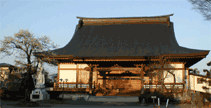| In Japan there are public hospitals (byouin) and private clinics (i-in). The clinics are often located near (or next to) a pharmacy. For serious illnesses it is recommended you go to a hospital, not a clinic. |
| Most doctors in Japan specialize in only one or two types of health care. There are very few general practitioners. When you arrive at a hospital, you will generally be asked which department you need to go to. If you don't know which section covers your ailment, then consult with the staff at the front desk. |
| Doctors are called sensei, the title for teachers and professors. |
| When the Japanese measure body temperature (taion), they put the thermometer in their armpit (waki) unlike some countries, where people put it in their mouths. |
| If you are hospitalized, you must bring all your own supplies (blanket, toothbrush, tissues, etc.) with you to the hospital as none will be provided. You are also expected to have your own family clean your sheets, etc. during your stay. |
| There is no room '4' in most hospitals because 4 can be read shi which also means death. (Not exactly a pleasant thought when you're in the hospital.) |



